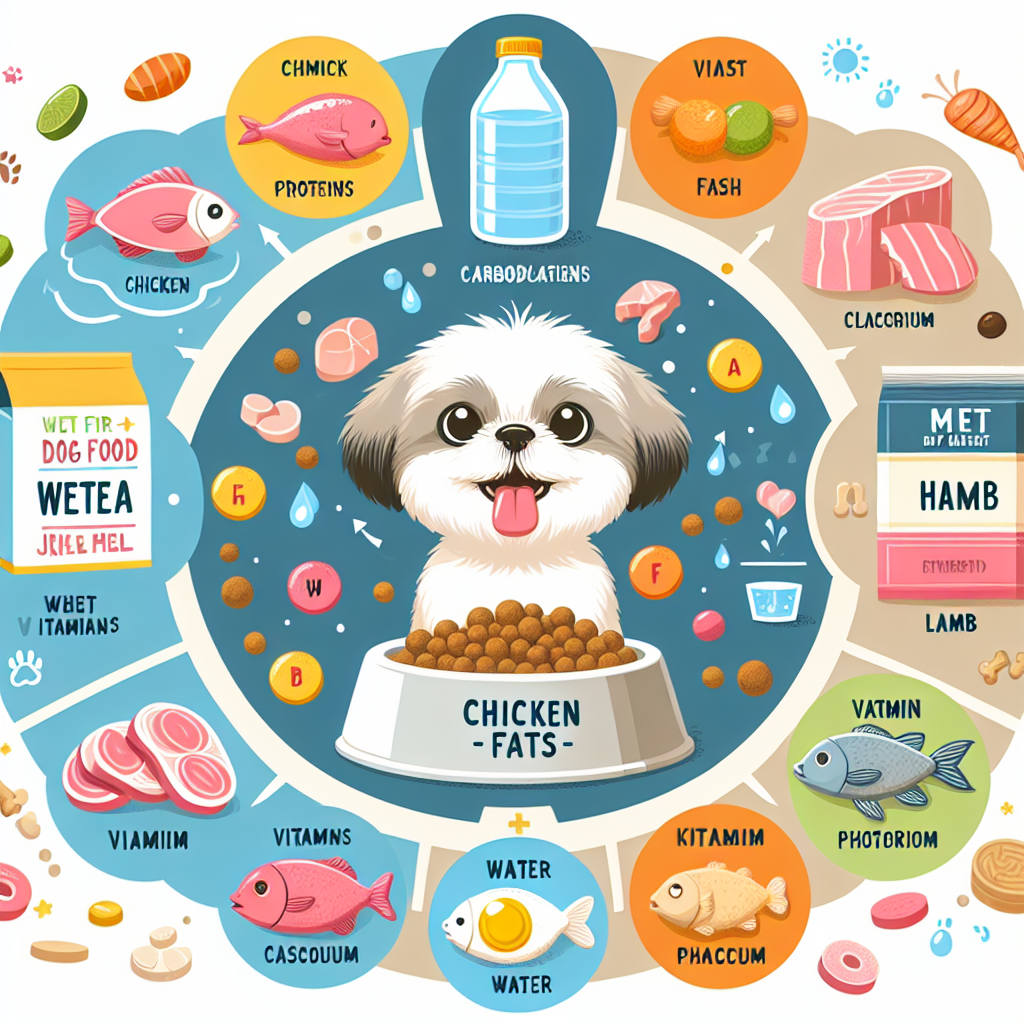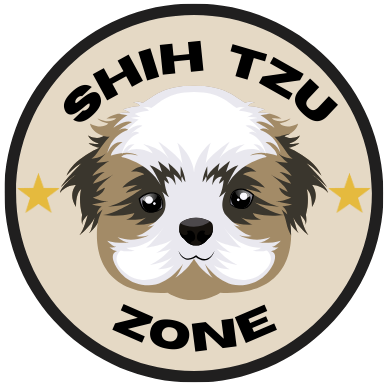Comprehensive Guide to the Best Shih Tzu Diet: Nutrition Essentials & Feeding Tips

Understanding the Ideal Shih Tzu Diet: Nutritional Needs and Guidelines
Note: This post may contain affiliate links; we will earn a commission (at no additional cost to you) if you purchase via our links. See our disclosure for more info.
Introduction
The Shih Tzu, with its charming demeanor and luxurious coat, is more than just a pretty face; it requires a balanced diet to maintain its health and vibrancy. My two Shih Tzus had completely different personalities: one was finicky, and the other liked everything. Like all breeds, personalities vary, but general wellness hinges significantly on its diet, influencing everything from energy levels to coat quality. Understanding the specific dietary requirements of a good Shih Tzu diet can help owners provide optimal care and promote a long, healthy life for their furry companions.
Nutritional Requirements for Shih Tzus
Essential Nutrients: Proteins, Fats, Carbohydrates
Proteins play a fundamental role in maintaining a Shih Tzu’s muscle development and overall vitality. High-quality sources such as chicken, fish, and lamb should be prioritized. Fats are equally important, supporting skin health and providing a concentrated source of energy; essential fatty acids like Omega-3 and Omega-6 are particularly beneficial. Carbohydrates, while secondary in importance, deliver the necessary fiber and energy to support a healthy digestive system and active lifestyle.
Key Vitamins and Minerals
Vitamins and minerals are crucial in ensuring that a Shih Tzu’s body functions optimally. Vitamin A supports healthy vision and immune function. B-vitamins are critical for metabolic processes. Minerals like calcium and phosphorus are essential in maintaining strong bones and teeth. Owners should ensure that these nutrients are present in appropriate amounts to sustain their pet’s health.
Role of Water in Shih Tzu Nutrition
Water, often overlooked, is a vital component of a Shih Tzu’s diet. Proper hydration supports digestion, regulates body temperature, and helps in nutrient absorption. Due to their small size and relatively high activity levels, Shih Tzus should always have access to fresh, clean water to prevent dehydration.
Choosing the Right Dog Food
Commercial Dog Food Options: Wet vs. Dry
Selecting between wet and dry dog food often depends on individual taste and specific health conditions. Wet food can be more palatable and hydrating, making it ideal for Shih Tzus that need to increase their water intake. Dry food is excellent for dental health as it reduces plaque and tartar buildup. Many owners find a combination of both types works best.
Reading and Understanding Dog Food Labels
Interpreting dog food labels is indispensable in guaranteeing your Shih Tzu receives the necessary nutrients without excess filler. Look for labels that list meat as the first ingredient and avoid food with high quantities of corn, wheat, or soy. Understanding the protein, fat, and carbohydrate content can ensure you’re choosing a well-rounded shih tzu diet for your pet.
Top Recommended Brands for Shih Tzus
Certain brands are renowned for their breed-specific formulas that cater to the unique needs of Shih Tzus. Brands like Royal Canin, Hill’s Science Diet, and Blue Buffalo offer recipes that promote healthy skin, beautiful coats, and proper weight management. Consulting with a veterinarian can provide personalized recommendations suited to your pet’s health needs.
Homemade Diets for Shih Tzus
Benefits and Potential Risks
Creating homemade meals allows for complete control over ingredients, ensuring high-quality nutrition tailored specifically to a Shih Tzu’s needs. However, this approach requires careful planning to avoid deficiencies and imbalanced meals. Potential risks include inadvertently offering a diet that lacks critical nutrients.
Sample Recipes and Meal Plans
Integrating lean proteins like turkey or chicken with vegetables like carrots and peas can create balanced meals. Incorporating brown rice or quinoa provides additional energy sources. Sample meal plans should cover the nutrients needed to sustain health and vitality over the long term.
Balancing Homemade Meals with Nutritional Supplements
When homemade diets are the primary feeding strategy, supplements are essential to fill nutrient gaps. Omega-3 fatty acids, glucosamine, and a comprehensive multivitamin can ensure a well-rounded dietary intake. Consultation with a veterinary nutritionist can offer further guidance tailored to your dog’s needs.
Foods to Avoid
Common Toxic Foods for Shih Tzus
Certain foods are harmful to Shih Tzus and should always be avoided. Chocolate, grapes, onions, and garlic are toxic and can cause severe health problems. Keeping a vigilant eye on your pet’s eating habits is critical for avoiding these dangers.
Understanding Food Allergies and Sensitivities
Shih Tzus may be prone to allergies involving ingredients such as beef, dairy, or grains, which can trigger skin issues or digestive disturbances. Identifying and eliminating allergens from the diet is crucial for maintaining comfort and health.
Tips for Preventing Accidental Ingestion of Harmful Foods
Being proactive by storing dangerous foods out of reach and monitoring dietary intake can prevent accidents. Education on what constitutes a harmful food ensures preparedness for any unfortunate incidences.
Feeding Schedule and Portion Control
Ideal Meal Frequency for Different Life Stages
Different life stages require different feeding frequencies. Puppies typically need three to four smaller meals daily, whereas adults can thrive on two meals. Senior Shih Tzus may benefit from more frequent, smaller portions to aid digestion and prevent obesity.
Portion Sizes to Maintain a Healthy Weight
Managing portion sizes is crucial for preventing obesity, a common issue in small breeds. Following guidelines on commercial packaging and consulting a veterinarian for personalized advice helps maintain an ideal weight range for your Shih Tzu.
Signs of Overfeeding and Underfeeding
Visible ribs and a lack of energy might indicate underfeeding, whereas excessive weight gain and lethargy can signal overeating. Regular monitoring and adjusting meal sizes can help address these issues effectively.
Special Dietary Considerations
Adjusting Diet for Shih Tzus with Health Issues
Shih Tzus with specific health issues like obesity or allergies require dietary adjustments. Weight management formulas and hypoallergenic diets can address such health concerns, promoting better overall health.
Age-Related Dietary Adjustments
As Shih Tzus age, their nutritional needs change. Puppies require higher caloric intake and enhanced protein for growth, while seniors benefit from reduced calories and joint-supporting nutrients like glucosamine.
Incorporating Treats and Snacks Mindfully
Offering treats should be balanced with their nutritional content and portion size. Opt for healthy treats that contribute to nutrient intake without excess calories or unhealthy ingredients.
Monitoring Your Shih Tzu’s Health
Indicators of a Healthy Diet
A shiny coat, high energy levels, and a regular digestive routine are signs of a healthy diet. Monitoring these factors regularly helps assess the impact of dietary choices.
Regular Veterinary Check-Ups and Diet Consultations
Routine vet visits allow for health evaluations and dietary consultations, ensuring that your Shih Tzu’s diet continues to meet its needs and adjusts with any changing health conditions.
Tools and Resources for Tracking Dietary Impact
Journaling food intake and using apps designed for pet health can help track dietary impacts on your pet’s health. These tools provide valuable insights into any necessary adjustments over time.
Conclusion
A balanced Shih Tzu diet is essential for fostering your Shih Tzu’s health and happiness. By understanding and meeting the dietary needs specific to this breed, owners can ensure their beloved pets lead vibrant, fulfilling lives. Regular assessment and adjustment of their diet will help maintain health, allowing your Shih Tzu to thrive across all life stages.
